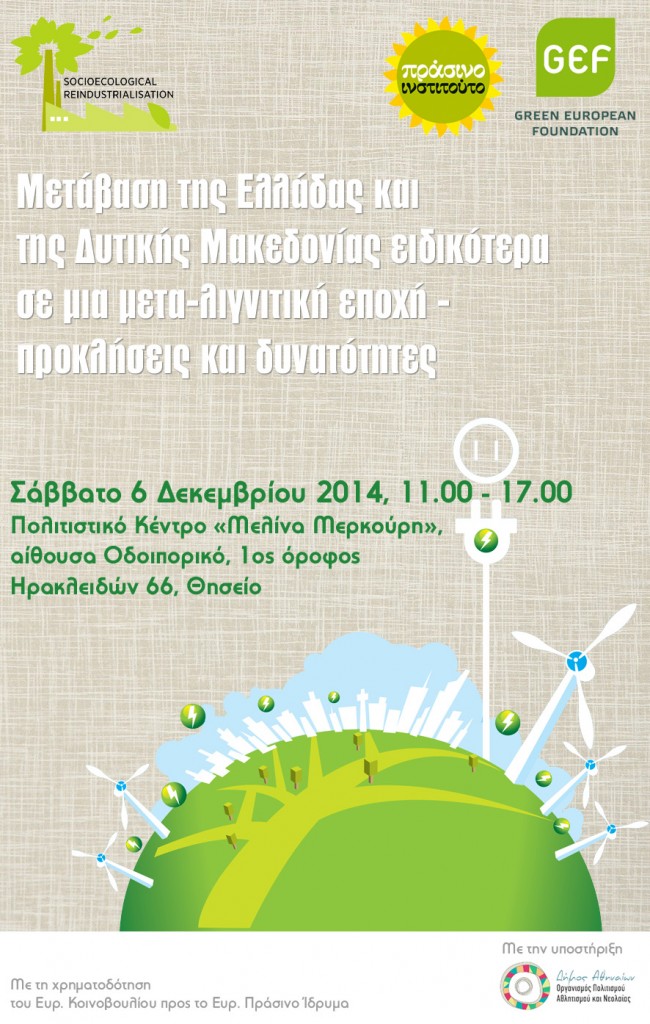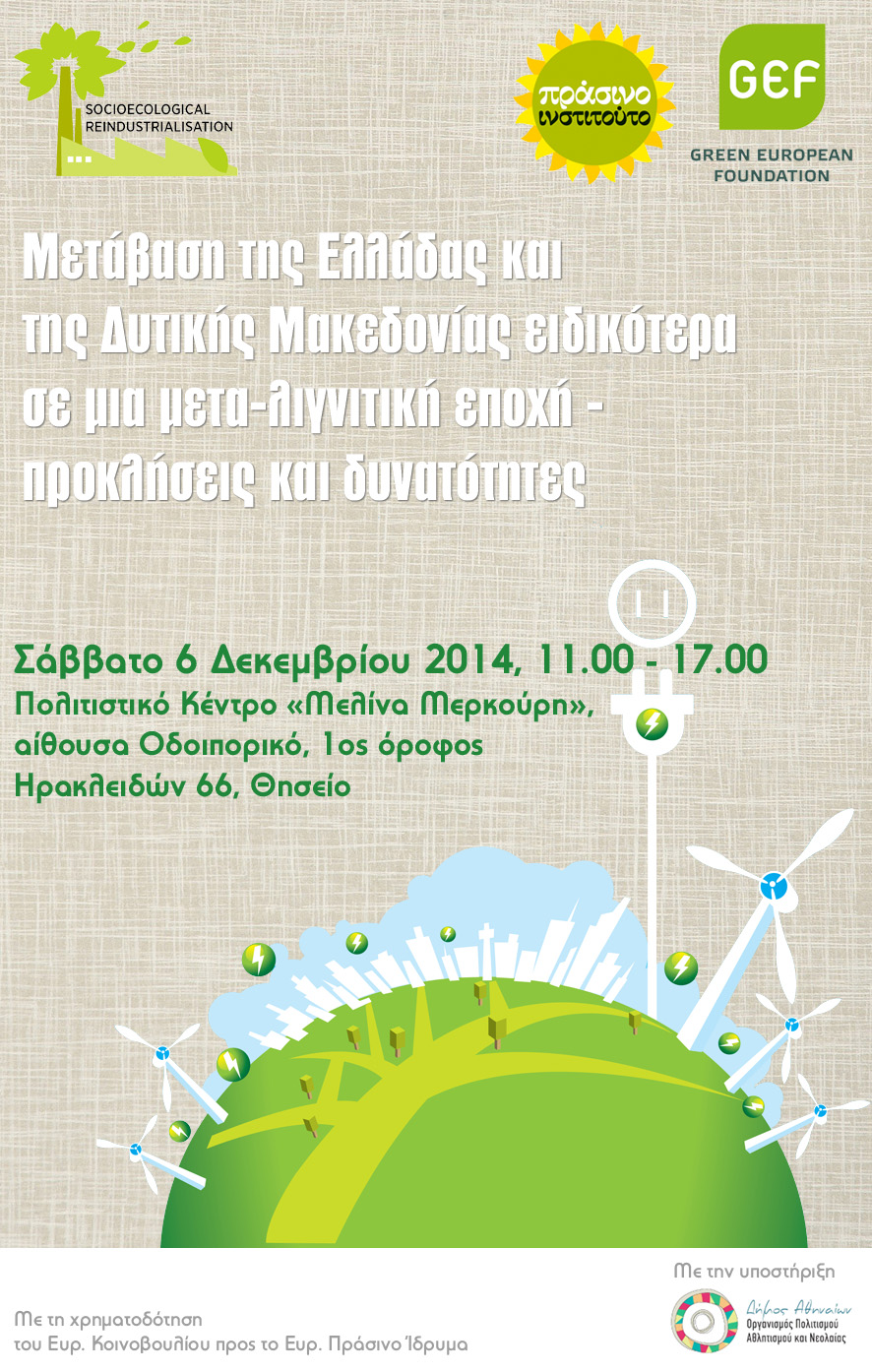Saturday 6 December 2014, 11am, “Melina Merkouri” Centre, Irakleidon 66, Athens
During the past decades, domestic lignite resources have played a dominant role in fuelling Greece’s economic development. Even now, half of the electricity produced in the interconnected System comes from lignite plants, ¾ of which are located in the Region of Western Macedonia.
Developments during the past 10-15 years have started to challenge lignite’s dominance:
- Some lignite deposits are approaching depletion (especially in the South of Greece)
- New renewable and natural gas plants have been installed, gradually reducing lignite’s market share
- Compliance with the EU’s Climate Strategy means that by 2020 40% of the electricity consumed in Greece needs to come from renewables and around 55% by 2030
- Compliance with the EU’s Industrial Emissions Directive will lead most of the lignite plants to close by 2021 or face huge upgrading costs
- Renewable energy costs are rapidly falling and will soon be competitive with lignite.
Greek ecologists and Greens have long campaigned for the transition of Greece to a post-lignite era. The above developments have started moving the debate away from the margins, but in crisis-stricken Greece, a lot remains to be done for this crucial debate to get to the centre of the public dialogue.
This public event aims to contribute to such a direction by presenting relevant experiences from Europe, investigating if lignite is indeed needed in the coming decades and outlining alternative opportunities for the region.
It is a Green European Foundation project, organised with the support of the Greek Green Institute in the Framework of the SERIND (“Socio-ecological reindustrialisation: Striking the Balance Between Local and Global Dynamics”) project. SERIND’s overall aim is to discuss the fundamental transformation needed for European industry as a part of the necessary ecological transformation of the European economy.
Agenda (Click here to download the detailed program for this event)
10:30 – 11:00 Arrivals
11:00 – 11:15 Introduction: a) The SERIND Project and the challenge for a new industrial policy in Europe b) Greece & lignite: why a transition is needed? (Tasos Krommydas, Green Institute, President)
Session 1 – Challenges and planning for a regional transition
11:15 – 11:20 Message from the Mayor of Kozani, Lefteris Ioannidis
11:20 – 12:00 A Life after Lignite – Transformation experiences in Central European Mining Regions
Carsten Debes, Resource Project http://resource-ce.eu/
(NB: simultaneous translation will be provided)
12:00 – 12:20 Operational Development Plan for the post-lignite era in Western Macedonia (Amanatidis, Director General of W. Macedonia Development Company)
12:20 – 12:40 For a green post-lignite era in Western Macedonia (Tsikritzis, Ecological Movement of Kozani)
12:40 – 13:00 Questions – discussion
13:00 – 13:40 Light lunch and coffee break
Session 2 – What future for lignite in the Greek energy system?
13:40 – 14:00 Strategy and planning of the Public Power Corporation for lignite’s role in the Greek electricity system (Leonardos, Director of mines’ planning and production, PPC)
14:00 – 14:15 Greece in a post-lignite era? (Mantzaris, energy & climate coordinator, WWF Greece)
14:15 – 14:30 Challenges and opportunities for PPC in post-lignite era (Ibrahim, Campaigns coordinator, Greenpeace Greece)
14:30 – 15:00 Political parties’ representatives
15:00 – 15:30 Roundtable
15:30 – 15:45 Coffee break
Session 3 – Social enterprises and their role for a new local development model
15:45 – 16:00 The experience of Renewable Energy coops in Europe and the case of Sifnos (Dimopoulos, Sifnos Coop, President)
16:00 – 16:15 Social enterprises in Greece – challenges for social entrepreneurship in Greece. (Spintahkis, social entrepreneurship consultant)
16:15 – 16:30 Commercial initiatives with herbs in Western Macedonia (Ecological Movement of Kozani)
16:30 – 16:45 Alternative funding instruments for energy coops and social enterprises (Tasos Krommydas)
16:45 – 17:00 Discussion
17:00 End of event
An event organised with the financial support of the European Parliament to the Green European Foundation


